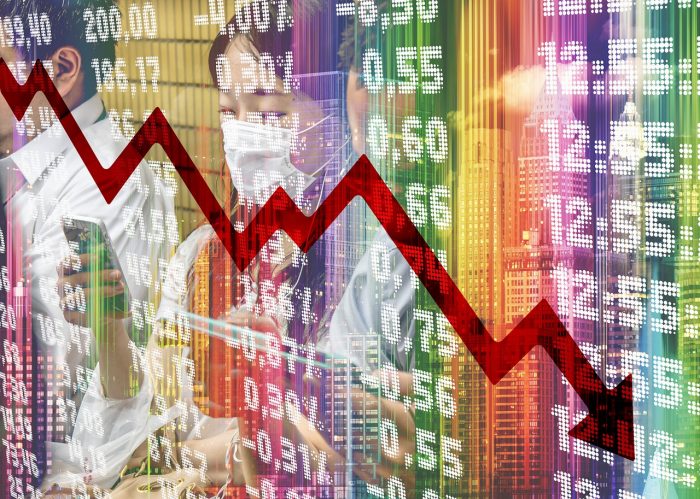On March 9, global stock markets showed a record fall since the crisis of 2008. Japanese NIKKEI 225 lost 5%, British FTSE 100 – 7.7%, German DAX almost 8%. A few hours after the opening, the US market crashed by 7%, which led to the launch of the rarely used stabilization mechanism — a 15-minute suspension of trading. This measure did not help much — at the end of the day, the largest market lost 6.84%. What were the reasons for such a decline?
The Reasons for Crash
There were a few major reasons for stocks to crash:
1) Oil
The consequences of the fact that Russia and OPEC did not agree to reduce oil production became clear. Saudi Arabia started an aggressive price war. The result — oil prices fell by 30%, reaching $31.2 per barrel (Brent), compared to $60 per barrel at the beginning of the year. Investors started to sell shares of energy companies on stocks because these companies simply couldn’t survive with such rates.
2) Panic
The fall in prices and the expected sale in the exchange markets provoked tremendous online trading because investors were looking for more protected instruments. They traditionally started investing in gold and American debt, so the demand for the US government bonds led to a decrease in their profitability below 0.5% per annum. This is another record.
3) Coronavirus
The spread of the COVID-19 has led to even bigger problems for the world economy. Last week, the OECD estimated the impact of coronavirus at 0.5% of global GDP and this is still a positive scenario. The virus is already in more than 100 countries of the world and even the states with a well-developed medical system cannot stop its spread. For example, more than 350 people died from the virus and nearly 8,000 became infected in Italy.

What Happened in Stocks?
Due to a huge drop in oil prices and the reasons listed above, the world indexes have fallen:
- In the US, the Dow Jones index fell by 7.78%, the S&P 500 — by 7.60%, the Nasdaq — by 7.92%.
- The British FTSE 100 index fell by 7.69%.
- The French CAC 40 decreased by 8.39%.
- The German DAX index decreased by 7.94%.
- The Italian FTSE MIB dropped by 11.17%.
- The Japanese Nikkei index lost 5.07%.
- The Chinese Shanghai Composite Index lost 3.01%.
Are There Any Reasons to Panic?
The panic in the oil market caused by a sharp drop in oil prices has enough arguments. According to the Goldman Sachs report, the oil price may soon drop to $20 per barrel. The oil war started by OPEC and Russia could push prices to decrease. It is assumed that the producers of cheap oil will increase supplies to force countries with high production costs to reduce its volumes. Obviously, it will impact Forex trading rates significantly.
The final investors in the stock markets have ignored all known and unknown risks for too long and were completely unprepared for a sharp decline in the market. The global fall pushed the investors with assets in developing countries to sell them. It is considered to be the biggest fund outflow from the emerging markets since mid-August of 2019 ($1.5 billion).
What Are the Forecasts?
The normalization of oil prices may support the global markets. However, there are no reasons to claim that it will happen during the following weeks. The main “white swan” may be a vaccine against coronavirus. It will stabilize the economic situation in most countries. The panic of foreign investors will not last long, but markets will remain under pressure at least until the US Federal Reserve meeting on March 18.
In Conclusion
The world of finance is a complex thing. It is sensitive to many external factors, including the prices on oil or the world pandemic. This stocks’ crash is a good reminder for everyone that nothing is stable and 100% predictable. If you are even the most experienced broker, there are still some factors that are impossible to predict.
Find a Home-Based Business to Start-Up >>> Hundreds of Business Listings.

















































